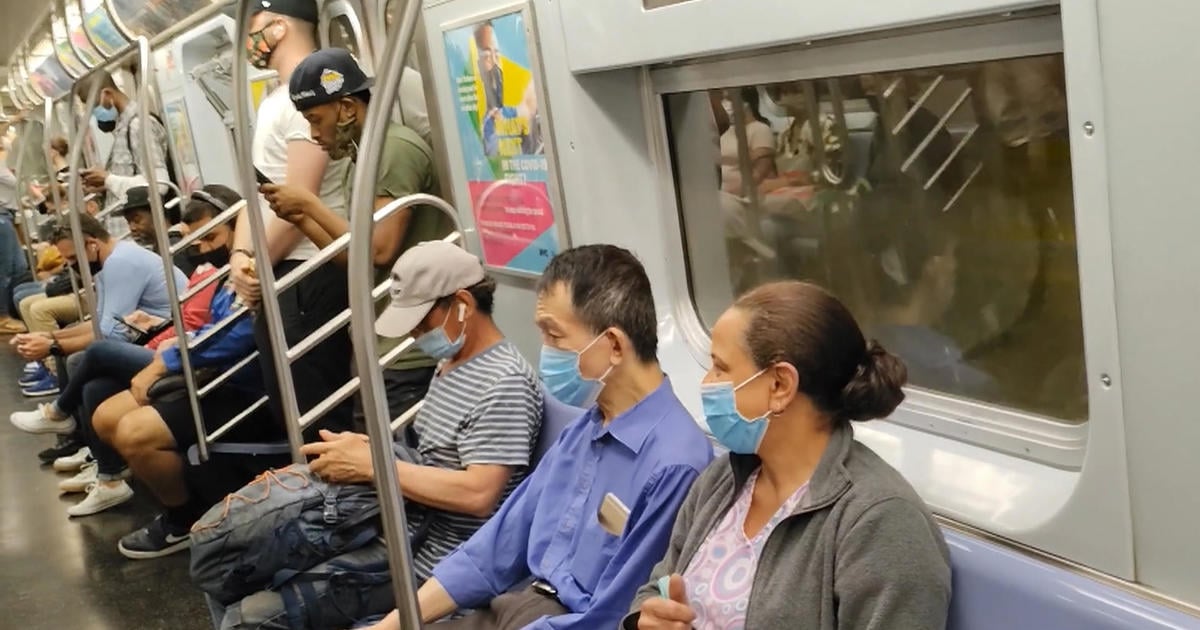In an interview for 60 Minutes, CBS News chief medical correspondent Dr. Jon LaPook posed that question to Linsey Marr, a Virginia Tech University professor specializing in aerosol science.
"They are very helpful in reducing the chances that the person will get COVID because it's reducing the amount of virus that you would inhale from the air around you," Marr said about masks.
No mask is 100% effective. An N95, for example, is named as such because it is at least 95 percent efficient at blocking airborne particles when used properly. But even if a mask has an 80% efficiency, Marr said, it still offers meaningful protection.
"That greatly reduces the chance that I'm going to become infected," Marr said.
Marr said research shows that high-quality masks can block particles that are the same size as those carrying the coronavirus. Masks work, Marr explained, as a filter, not as a sieve. Virus particles must weave around the layers of fibers, and as they do so, they may crash into those fibers and become trapped.
Marr likened it to running through a forest of trees. Walk slowly, and the surrounding is easy to navigate. But being forced through a forest at a high speed increases the likelihood of running into a tree.
"Masks, even cloth masks, do something," she said.
Not that I expect most people to believe it at this point…



Lol. Meanwhile, in places with functional, proper lockdowns, you know what happened? No-one died of covid. (Well, 7 out of 2 million).
And then you know what they did? Because there was no covid anywhere around, there were (almost) no restrictions. And no-one died of covid for all of 2021 (actually zero).
People could walk around, free of worry, fear and disease. Because the lockdowns worked, and worked well - when they were actually done.
Now, half-assing things… That was basically the worst of both worlds. And if there is one thing the USA excels at, it's half-assing things.
Just going to ignore the suicides, massive decline in income, education, and society. But yes, no covid.
[Citation needed]
https://www.nimh.nih.gov/news/science-news/2023/youth-suicide-rates-increased-during-the-covid-19-pandemic
That says the rates were higher than expected during pandemic, it does not say lockdowns were a cause.
It was the cause.
Your citation does not support that statement.
Lucky for me you're not my PhD mentor and this isn't graded. You don't have to accept that isolation lead to a huge up tick in suicides, but you can't provide a argument that it didn't.
Claims to be working on a PhD but can't cite sources to support their argument and wants others to prove a negative.
What I love is how you're focused on suicides from poorly managed areas, and ignoring deaths from covid.
Not saying suicide isn't tragic, but drowning in your own lung juice is also tragic, and with a reduction of deaths by several thousand times compared to places to none or poorly handled lockdowns, it seems saving lives and restoring the economy quickly worked really, really well for them.
But let's focus on how "bad management leads to bad results", and then question why you're a whiny child who has a temper tantrum when being told what to do.
Where does it say that?
Nope, you don't understand what I wrote. Read it again, this time with all the words.
I'll clarify it for you.
Effective lockdowns led to safe no-lockdowns.
Big boost in economy as everyone else was fckd, but they were able to return to normal.
What you're complaining about were ineffective lockdowns. Half-assing it. Lockdowns are - and proven were - very, very effective in all respects.
What you're talking about isn't "lockdowns bad", but "if we do things poorly we get poor results".
Obviously you're not a tertiary education student, or you'd be aware of that concept.
There were zero safe lockdowns. ZERO
Except for all the ones that were.
But you want to be a reality denier, and live in your imaginary fantasy world, I can't help you.
What's worse is how little you value human life. A secondary issue to the main topic of you ignoring reality and actual recent history of places that aren't where you live.